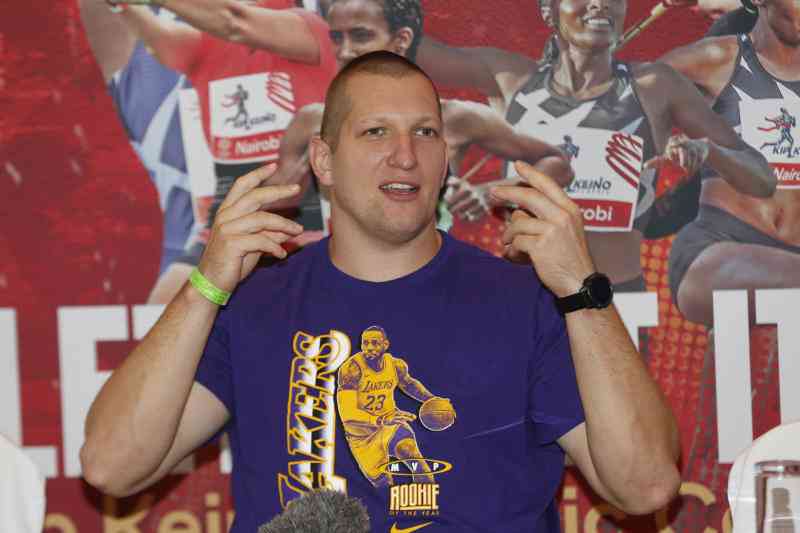Kenya is set to use social media to promote its tourism industry that is currently on its knees due to security challenges posed by terrorist attacks.
The East African nation will in the next months start using Facebook, Twitter, blogs and Instagram to reach out to potential tourists across the world in new and traditional source markets.
The effort is spearheaded by the Tourism Recovery Task Force (TRTF) under the Ministry of East African Affairs, Commerce and Tourism.
"We are calling on active social media users to collaborate with the TRTF to position the country as a preferred destination for tourism, conferencing and investment," Donald Kipkorir, chairman of marketing and branding committee of the task force said on Thursday.
Tourism analysts have lauded the move, noting that it is long overdue since social media is the single most powerful communication tool currently.
Sandra Rwese, director of Gulu and Hirst, a tourism marketing agency, noted that Kenya is on the right track as using social media is practical, effective and reaches out to millions of people.
"Social media is not only a novel method of tourism promotion and marketing but realistically speaking, it is the only way to capture the new generation of digitally conscious consumers, especially the younger travellers, some who help their parents make decision on which country to visit," she said.
According to Rwese, whose agency deals with social media marketing, youngsters are silent brand ambassadors who play a pivotal role in influencing some family financial decisions.
"They can easily steer a family vacation to Disneyland, or a kayaking holiday adventure, even to the Kenyan coast during December school holidays. Youth markets are worth an estimated 136 billion U.S. dollars worldwide," she said.
The analyst observed that no country today can stick to traditional methods of promoting itself as a tourist destination and win the numbers it needs.
"Unbeknownst to most leading hospitality operators is the fact that social platforms have taken over the more traditional print- based promotional platforms like billboards, pamphlets and expos. You cannot rely on such platforms to reach out to millions of people across the world," she said, adding that social media is cheaper and faster despite its wide reach.
"This new media is easy to set-up, and gives tourism outfits immeasurable brand power online. It has direct social outreach and impact on people planning vacations, tours, safaris or other leisure experiences both locally and abroad. A single social update, online game, or QR code can go viral in hours, and see ordinary businesses rake in staggering profits down the line," the analyst said.
Rwese noted Kenya's tourism players have to understand various social media applications, and know how they can best serve their strategies when starting marketing themselves on social media. She also said the administrator matters most in any successful social media tourism marketing.
"You need to build a team: one where infrastructure development is assigned to social strategists (preferably under age 30), and the team is led by an experienced content manager ideally over age 40," she said, adding bilingual candidates should also be encouraged into the team.
The analyst, who links tourism firms from Africa to Chinese market, observed that Kenya should use the online social networks to reach both domestic and international tourists.
Stay informed. Subscribe to our newsletter
Kenya's tourism sector is currently in crisis due to security challenges that have led to issuance of travel advisories by U.S., Australia, France and Britain.
According to Kenya Tourism Board, Kenya has received 428,233 tourists in the first half of this year, down from 495,660 in the same period last year.
 The Standard Group Plc is a
multi-media organization with investments in media platforms spanning newspaper
print operations, television, radio broadcasting, digital and online services. The
Standard Group is recognized as a leading multi-media house in Kenya with a key
influence in matters of national and international interest.
The Standard Group Plc is a
multi-media organization with investments in media platforms spanning newspaper
print operations, television, radio broadcasting, digital and online services. The
Standard Group is recognized as a leading multi-media house in Kenya with a key
influence in matters of national and international interest.
 The Standard Group Plc is a
multi-media organization with investments in media platforms spanning newspaper
print operations, television, radio broadcasting, digital and online services. The
Standard Group is recognized as a leading multi-media house in Kenya with a key
influence in matters of national and international interest.
The Standard Group Plc is a
multi-media organization with investments in media platforms spanning newspaper
print operations, television, radio broadcasting, digital and online services. The
Standard Group is recognized as a leading multi-media house in Kenya with a key
influence in matters of national and international interest.









